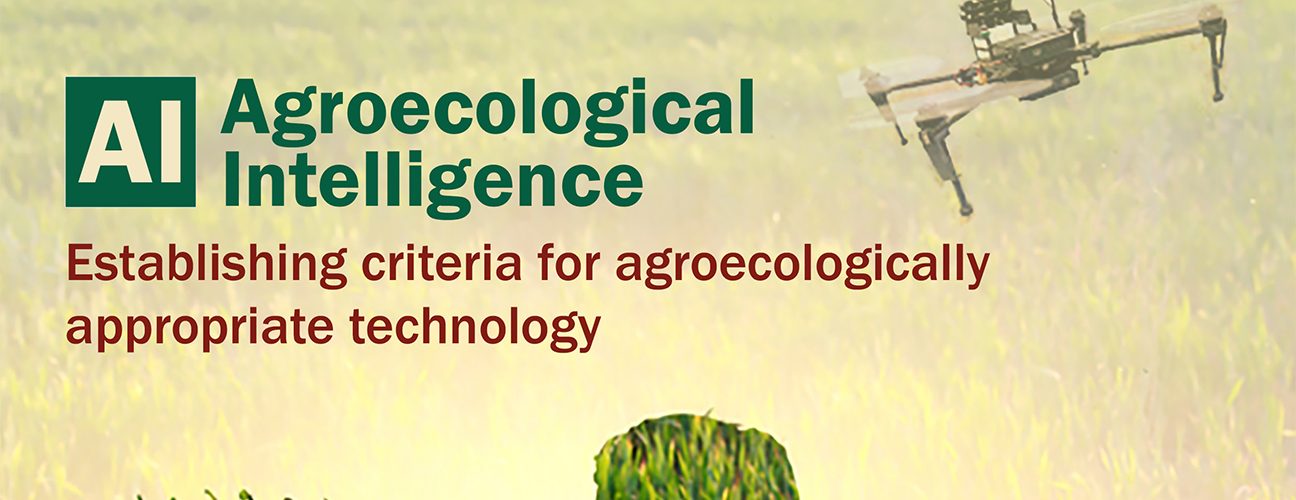What do agroecological farmers think about agritech?
The Final Report of the Agroecological Intelligence Project: ‘Establishing Criteria for Agroecologically Appropriate Technology’ has been published by A Bigger Conversation. The authors write: “It is our attempt to summarise the many hours of fascinating conversations we had with you all at our workshops and at conferences, as well as the survey feedback, about the role of technology in agroecology. It explores in some detail the agritech landscape and the nature of agroecology in the UK, and proposes some simple criteria for assessing the appropriateness of technology for agroecological farming systems including a decision-making guide. These criteria included practical considerations – whether it is needed and its footprint; philosophical considerations – e.g. whether it supports diversity and farmer autonomy; and political considerations – who benefits and whether it was made collaboratively.”
Some of the key takeaways were:
- Project participants were not inherently anti-technology nor anti-innovation. But they were suspicious of top-down, developer driven technology which they perceived as removed from their interests and challenges.
- Many participants were already using ‘new’ technology – such as smartphone apps, virtual fencing and data analysis – effectively. Since one of the goals of agroecological farming is to lower inputs of all kinds, this translated into a questioning, ‘techno-minimalist’ attitude, towards more complex high technologies.
- There was a strong belief that improvement to existing technologies and lower tech alternatives that can be repaired, reused, shared and/or re-purposed was important and should be considered ‘innovative’.
- Most believed that agritech developers had a responsibility to embrace whole systems, consider the appropriateness and the consequences of their innovations – and that this should involve input from agroecological farmers and growers at the earliest possible opportunity, preferably at or before the development stage.
- While it’s true that there are technologies that can enhance agroecology, it is equally true that there are technologies or applications of technologies that may be so far removed from agroecological principles that they should not be allowed within the system.
- Agroecology’s emphasis on whole systems, on an equitable balance between ecological, social and economic aspects of farming and the wider food system presents a challenge for policymakers and complicates policy formation. Nonetheless, allowing agroecological values to inform technological development is both innovative and transformative. Failure to recognise this narrows the range of innovations being considered at a time when we need more, rather than fewer, options.
The report also includes key recommendations for what government and tech developers can do to facilitate agroecologically appropriate technology in agriculture, and ideas for the agroecological movement as a whole to consider.
https://tinyurl.com/AI-BC-report
